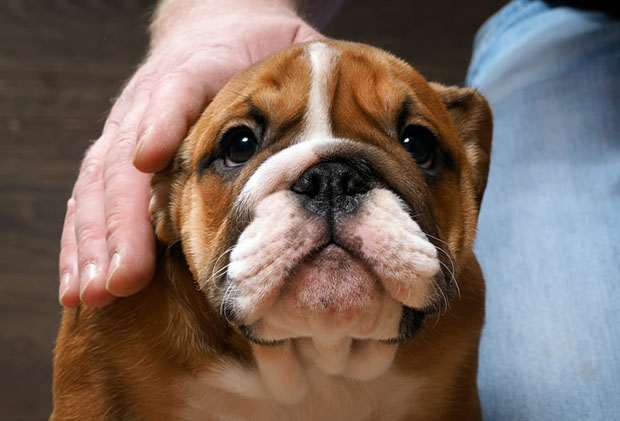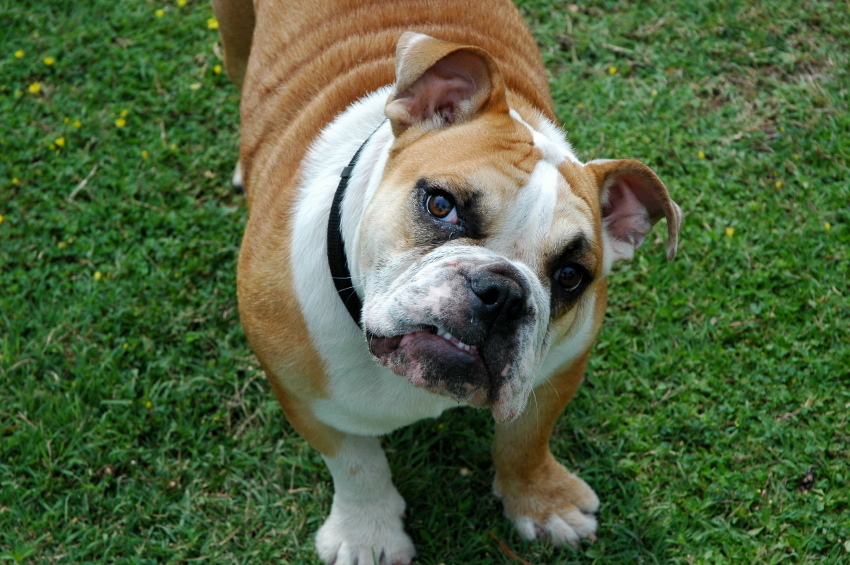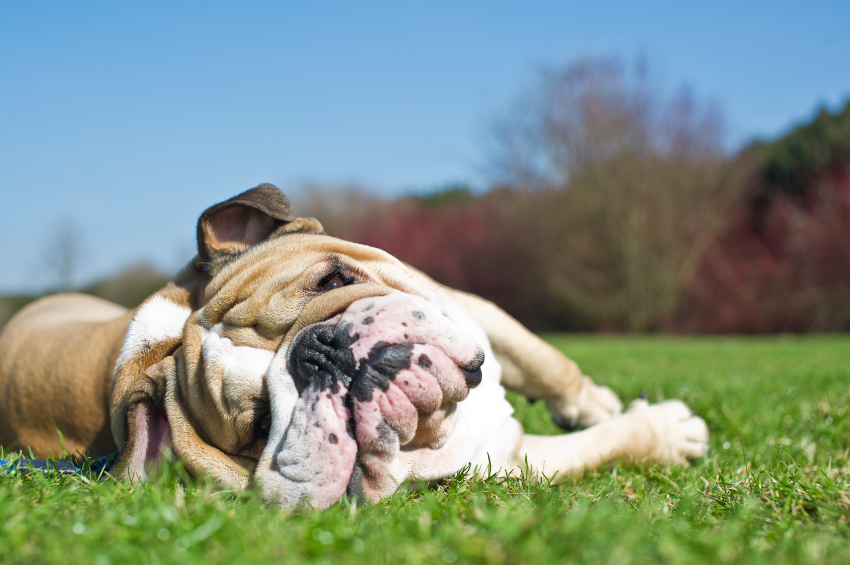Canine parvovirus in Bulldogs is a deadly disease that may kill an infected young puppy in 72 hours. With on-schedule vaccination and proper care, you can prevent the virus from harming your pet.

Parvovirus in Bulldogs #1: How Does it Affect Your Pet
Canine parvovirus is highly contagious. The virus can infect puppies even when they are not directly exposed. It attacks rapidly dividing cells in the body and targets the infected dog’s intestinal tract and white blood cells. Newborn puppies infected by the virus may suffer lifelong heart problems.
Parvovirus in Bulldogs #2: It is Highly Contagious
Canine parvovirus is highly contagious. The virus can survive in the grass or soil for months. In fact, it can withstand common household disinfectants. It can latch on your feet, hands, and body when not cleaned. Parvovirus may live on the soles of shoes, clothes, or just about any object you brought from outside. It is commonly present in the soil where a parvo-positive dog defecated.
Parvovirus in Bulldogs #3: The Increased Risk of Infection
Young puppies who have been recently weaned away from their mothers are the most susceptible to the disease. Puppies get an immunity boost through the colostrums in their mothers’ milk. When they stopped receiving it, the level of antibodies starts to drop after a few weeks. This leaves the puppies susceptible to various diseases, including parvo.
Puppies aged between 6 and 12 weeks are more susceptibility to canine parvovirus and distemper diseases. Early detection and immediate treatment are important to treat parvovirus infection. Parvo-infected puppies who receive early supportive care and treatment have a 50% to 80% chance of survival.
Parvovirus in Bulldogs #4: Finding Signs and Symptoms
The incubation period of the parvovirus in Bulldogs is usually 3 to 7 days. Your dog may show the following symptoms once the incubation is complete.
- Depression
- Lethargy
- Loss of appetite
- Vomiting (may have traces of blood)
- Diarrhea
- Bloody stool that smells rotten
Parvovirus in Bulldogs #5: How To Diagnose Parvo
If the clinical assessment points toward suspected canine parvovirus infection, blood and stool samples are taken for testing. The most common confirmatory tests include the CPV Rapid Test Kit and the Enzyme-Linked Immunosorbent Assay (ELISA) Test.
Parvovirus in Bulldogs #6: The Vaccination
The most effective way to prevent your Bulldog from catching this deadly disease is to have him vaccinated. The most common combination vaccine used in young puppies is the DHLPP 5-in-1 vaccine, which helps build your pet’s immunity against canine distemper (D), hepatitis (H), leptospirosis (L), parvovirus (P), and parainfluenza (P).
Your Bulldog should have three vaccine shots until he turns 16 weeks old. The best time to start vaccinating your pet is when he is 6 to 8 weeks old. You must have 3 to 4 weeks gap between two shots. He may need annual booster shots for a few years. Plan your schedule in consultation with your vet.
Parvovirus in Bulldogs #7: Preventing the Virus Transmission
Disinfect your house, shoes and other items
Disinfect your house, especially the floor, using a mixture of bleach and water. Do not forget to clean yourself after attending to a parvo-infected dog.
To make a disinfectant that can kill Parvovirus, mix one part bleach to 30 parts of water. You may soak the infected dog’s belongings in the solution and leave it for 30 minutes before rinsing. This mixture also helps kill viruses that may have stuck on the soles of your shoes. Pour it into a spray bottle and spray in on the soles of your shoes or slippers before going inside the house.
What to do when your dog is infected?
Isolate your dog from other pets. Do not let other dogs use the infected dog’s toys, bowls, and other belongings. Even dogs who already recovered from the disease need to be isolated from other dogs for 2 to 4 weeks.
You should consider admitting a parvo-positive dog in the hospital especially. This lessens the risk of transmission to other dogs in the household and helps in speedy recovery.
Parvovirus in Bulldogs #7: How is it Treated
There are no drugs that can directly kill this virus. However, there are man-made immunoglobulins that can be used to help fight the canine parvovirus. But they are not always effective.
The best way to treat canine parvovirus in your Bulldog is to reinforce his own immune system to fight the virus through supportive care and preventing any secondary infections. The usual treatment used in affected dogs may include:
- IV fluids for rehydration
- Pedialyte or dextrose powder-water solution (if the dog is not on IV)
- immune system boosters (vitamins and immunostimulants)
- antibiotics to treat infections
- probiotics to increase good bacteria in the gut
- anti-diarrheal suspension
- vitamin k supplements to help clot internal bleeding
- medication to help reduce vomiting
Parvovirus in Bulldogs #8: Can A Dog Get Infected Twice?
Parvovirus re-infection rarely happens. Experts say that dogs who survive parvo are protected from the same virus for life. However, it is still necessary to have your Bulldog’s vaccinations completed.

